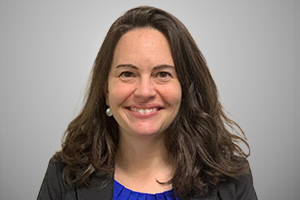This website uses cookies so that we can provide you with the best user experience possible. Cookie information is stored in your browser and performs functions such as recognizing you when you return to our website and helping our team to understand which sections of the website you find most interesting and useful.
Circles of Reflection Toolkit: Improving Education for Native Students
September 26, 2023

For decades, Native students have faced significant opportunity gaps that impede their academic achievement and trajectories. To close these gaps, the Native Education Collaborative, supported by the National Comprehensive Center (NCC), directed by Westat and funded by the U.S. Department of Education, developed Circles of Reflection: A Toolkit for SEA—a 3-part series of rich, constructive discussions between state education agencies (SEAs), Tribal education departments, and local education agencies (LEAs).

Circles of Reflection, or Circles, is designed to help participants reflect on the needs of Native students and strategize the systemic transformation of their education. So far, 5 SEAs have engaged in these talks and created 90-day action plans. But what impact will it have and can it be used to improve the education of other underserved students? Amy Bitterman, a Westat Senior Research Associate and co-leader of the project, answers these questions and more.
Q. Tell us about the Circles of Reflection toolkit and what prompted its development?
A. The Circles of Reflection toolkit is an interactive, adaptable resource enabling education leaders to independently facilitate the Circle gatherings. When we first developed Circles, it was a 50-page resource, posted on the NCC website as a PDF document. As we completed Circles with several SEAs, we decided to create a more user-friendly, easily accessible online toolkit.
Q. What’s in the toolkit?
A. The toolkit contains customizable worksheets and step-by-step instructions on how to complete each Circle. It also includes presentation slides, facilitation guides, and modifiable Reflection Questions focused on key areas of Native education: Native Culture and Language, Tribal Consultation and Sovereignty, Effective Teachers and Leaders, College and Career Readiness, Physical and Behavioral Health, and Identification and Support of Promising Programs and Practices.
Q. Why do the Circle gatherings and toolkit matter?
A. Circles of Reflection gives Tribes a voice in the education of their youth while ensuring transparency and accountability of state- and district-level efforts to improve Native students’ education. We chose the concept of talking circles because that method of communicating, a practice used by some Tribes, allows participants to share differing voices and perspectives and supports consensus building.
Q. What is the hoped-for impact of the toolkit?
A. Circles is an effective resource for education departments at all levels that want to build relationships with Tribes in districts with high proportions of Native students. It is one of the only resources around that provides states with the steps needed to include tribal education leaders in creating unbiased, quality education for Native students.
Q. How does Circles of Reflection improve outcomes for Native students?
A. Tribes enhance their students’ overall educational progress by fostering bonds and support that connect and strengthen their communities and citizenry. The collaboration through Circles of Reflection supports Tribal engagement and strengthens relationships between educational agencies, resulting in better supports for Native students.
Q. Can the toolkit help SEAs enhance education for other underserved students?
A. Yes, definitely. The toolkit offers an important mechanism to enable these students’ advocates to be heard and brought into the decisionmaking process. At the request of the Office of Indian Education, we also created a version to help Tribal Education Departments work with their districts and help those operating their own schools enhance their students’ educational experiences in collaboration with districts and the SEA; see the Circles of Reflection for the STEP Grant. This model could potentially be adapted to work with other groups of educational stakeholders.
-
Perspective
Westat Work Shines at 2024 APHSA EMWB ConferenceSeptember 2024
Westat human services experts recently presented at the American Public Human Services Association (APHSA)’s Economic Mobility and Well-Being (EMWB) Conference in Portland, Oregon. At the…
-
Perspective
Westat Tools Help Protect Child PassengersSeptember 2024
Vehicle crashes are a major cause of injuries and fatalities among children, a problem safety advocates in the U.S. acknowledge and work to minimize by…
-
Perspective
International Overdose Awareness Day: August 31, 2024August 2024
Overdose continues to impact the lives of so many around the world. The theme of the 2024 International Overdose Awareness Day, August 31, 2024, is…
